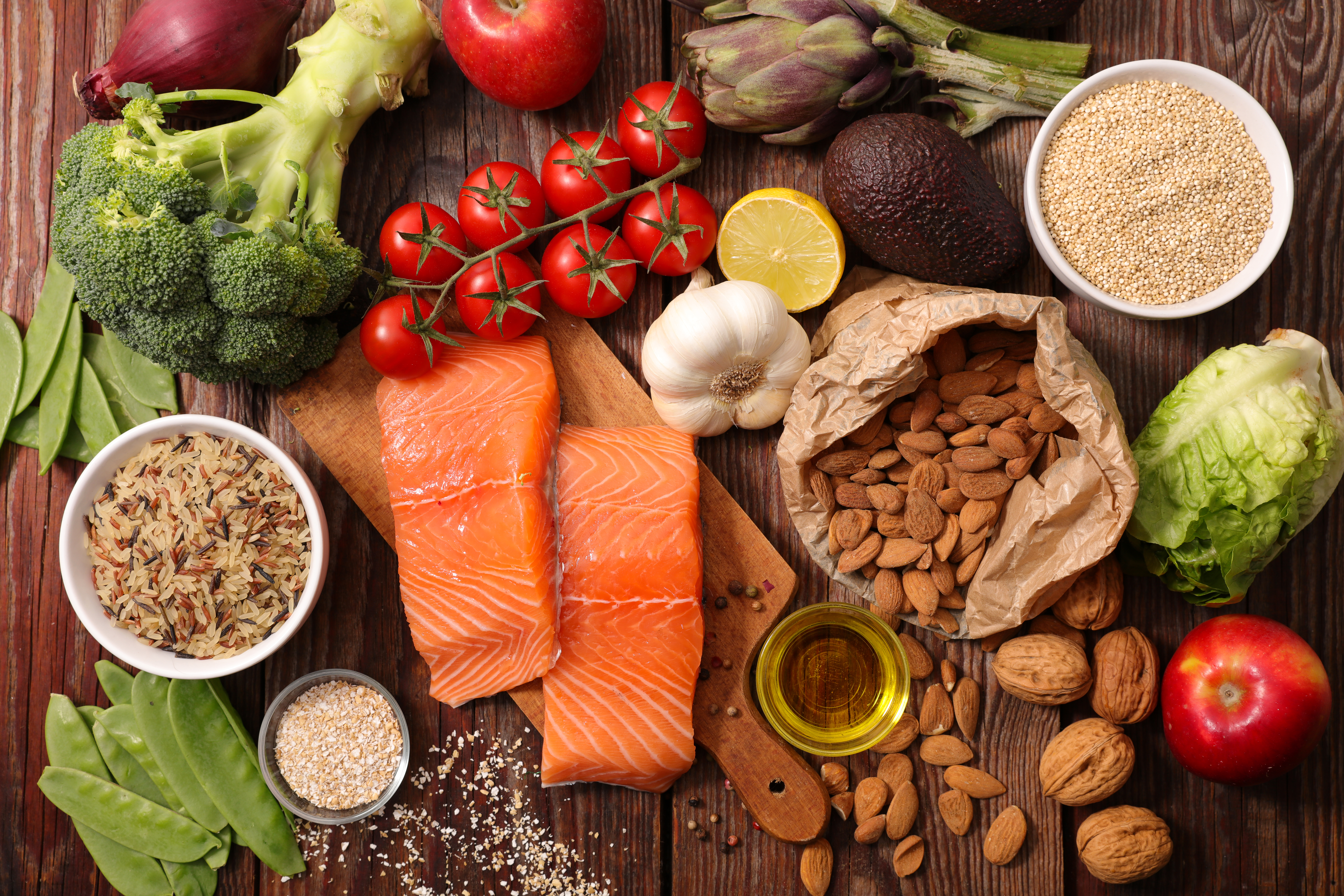 Maintaining a heart-healthy diet is an essential aspect of preventative cardiology, helping to reduce the risk of heart disease and promote overall cardiovascular well-being. By incorporating nutrient-rich foods into your daily meals, you can support a healthy heart and embrace heart-healthy habits. Let’s explore some practical tips for a heart-healthy diet, highlighting a few foods that promote cardiovascular health and providing guidance on making wholesome choices.
Maintaining a heart-healthy diet is an essential aspect of preventative cardiology, helping to reduce the risk of heart disease and promote overall cardiovascular well-being. By incorporating nutrient-rich foods into your daily meals, you can support a healthy heart and embrace heart-healthy habits. Let’s explore some practical tips for a heart-healthy diet, highlighting a few foods that promote cardiovascular health and providing guidance on making wholesome choices.
Fill Your Plate with Fruits and Vegetables
Fruits and vegetables are powerhouse foods for a healthy heart. Packed with vitamins, minerals and antioxidants, they help protect against heart disease. Aim for a colorful variety of fruits and vegetables, such as berries, leafy greens, citrus fruits and cruciferous vegetables. They offer a variety of benefits from their heart-protective properties.
Embrace Whole Grains
Swap refined grains for whole grains to boost your heart health. Whole grains, like oats, quinoa, brown rice and whole wheat, are rich in fiber, vitamins and minerals. They can help lower cholesterol levels and stabilize blood sugar levels, reducing the risk of heart disease and promoting optimal cardiovascular function.
Include Low-Fat and Fat-Free Dairy
Low-fat and fat-free dairy products provide essential nutrients without the added saturated fats. Opt for skim milk, low-fat yogurt and reduced-fat cheese to incorporate calcium, vitamin D and protein into your diet while minimizing the intake of unhealthy fats.
Opt for Protein-Rich Foods
Choose lean sources of protein, such as fish, skinless poultry, legumes, eggs, nuts and seeds. These foods provide necessary protein, omega-3 fatty acids and fiber without the excess saturated fats found in some animal products. Omega-3 fatty acids are particularly beneficial for heart health, as they help reduce inflammation and support healthy blood vessels.
Practice Portion Control
Maintaining heart-healthy habits also involves portion control. Even healthy foods can contribute to weight gain and other cardiovascular risks when consumed in excess. Eat slowly and try to avoid using screens at mealtimes. Pay attention to serving sizes and listen to your body’s hunger and fullness cues.
Incorporate Healthy Fats
Not all fats are created equal, and it’s important to include heart-healthy fats in your diet. Opt for unsaturated fats found in olive oil, avocados, nuts and seeds. These fats help lower cholesterol levels and reduce the risk of heart disease when consumed in moderation.
Mind the Salt
Excessive sodium consumption can lead to high blood pressure, a significant risk factor for heart disease. Limit your intake of processed and packaged foods, as they often contain a great deal of salt. Instead, flavor your meals with herbs, spices, and natural seasonings to reduce reliance on added salt.
Developing life-long heart-healthy habits is an essential aspect of preventative cardiology, helping to reduce the risk of heart disease and promote overall cardiovascular well-being. By incorporating nutrient-rich foods into your daily meals, you can support a healthy heart and embrace heart-healthy habits.
To learn more about preventative cardiology and what you can do to help your heart be its best, contact AMS Cardiology at 215-517-1000. We have appointments available at various locations and are now offering telehealth appointments. Remember, prevention is the best medicine!

